Acne & pimple is a common skin condition that affects many people. It is caused by excess oil production, clogged pores, and bacteria. Acne most often appears on the face, neck, chest, and back. There are several different types of acne, including blackheads, whiteheads, papules, pustules, nodules, and cysts. Acne can range from mild to severe and can cause physical discomfort as well as emotional distress.
There are many treatments available for acne, including over-the-counter medications and prescription medications. ACNE & PIMPLE
It is important to cleanse the skin gently and avoid picking or squeezing pimples, as this can lead to scarring. Some people find that using non-comedogenic (non-pore-blocking) skin care products and makeup can help to prevent acne. It is also important to maintain a healthy diet and lifestyle to help manage acne. If you are concerned about your acne, it is a good idea to consult a dermatologist for personalized treatment recommendations.
PATHOPHYSIOLOGY OF ACNE
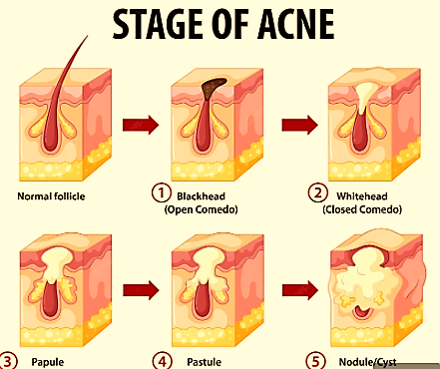
Acne is a complex skin condition that involves several factors. The main factors that contribute to the development of acne are excess oil production, clogged pores, and the presence of bacteria.
Excess oil production:
The skin has glands called sebaceous glands that produce oil (also called sebum). In people with acne, the sebaceous glands produce too much oil, which can lead to clogged pores.
Clogged pores:
The excess oil produced by the sebaceous glands can mix with dead skin cells and form a plug in the pores. This plug can create an ideal environment for bacteria to grow.
Bacteria: ACNE & PIMPLE
One of the main types of bacteria that are involved in acne is Propionibacterium acnes. This bacterium is normally present on the skin, but it can multiply and cause inflammation when it gets trapped in a clogged pore.
Inflammation:
When the bacteria multiply, they can trigger an immune response, which leads to inflammation. The inflammation causes the redness and swelling that is characteristic of acne.
Acne can also be influenced by hormonal changes, certain medications, and genetics. Factors such as stress and certain cosmetics can also worsen acne.
PROLONGED ACNE WITHOUT TREATMENT CAN CAUSE!!
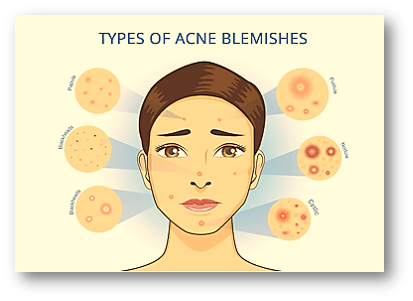
If acne is not treated, it can lead to several problems. Here are some of the potential complications of untreated acne:
Scarring:
Picking or squeezing pimples can cause inflammation and scarring. Acne cysts and nodules can also cause scarring.
Dark spots:
Acne can cause dark spots (also called hyperpigmentation) on the skin. These spots are caused by an excess of pigment in the skin and can take months or even years to fade.
Emotional distress:
It can cause a significant amount of emotional distress, especially in adolescents. It can lead to low self-esteem and self-consciousness.
Other skin problems:
Untreated acne can lead to other skin problems, such as rosacea (a condition that causes redness and bumps on the face) and dermatitis (inflammation of the skin).
It is important to treat acne to prevent these potential complications. There are many effective treatment options available, so it is a good idea to consult a dermatologist if you are struggling with acne.
POOR HEALTH CONDITIONS AND ACNE!!
There are several internal health conditions that can cause or worsen acne. Here are some examples:
Hormonal imbalances:
Hormonal fluctuations can cause acne. For example, acne is common during puberty due to increased androgens (male hormones) in both males and females. Acne can also be a sign of other hormonal imbalances, such as polycystic ovary syndrome (PCOS) or Cushing’s syndrome.
Certain medications:
Some medications can cause acne as a side effect. Examples include anabolic steroids, lithium, and medications that contain iodides or bromides.
Genetic predisposition:
Acne can be inherited, so if your parents had acne, you may be more likely to develop it as well.
Nutritional deficiencies:
A lack of certain nutrients, such as zinc or vitamins A and E, can contribute to acne.
Stress:
Stress can worsen acne because it can lead to hormonal imbalances and increased oil production.
It is important to consult a healthcare professional if you suspect that an underlying health condition may be contributing to your acne. They can recommend appropriate treatment options.
MEDICAL TREATMENT OF ACNE!!
There are several different treatment options available for acne, and the best option for you will depend on the severity of your acne and your individual circumstances. Here are some common medical treatment options for acne:
Topical medications:
These are applied directly to the skin and can include benzoyl peroxide, salicylic acid, and retinoids (such as tretinoin).
Antibiotics:
Antibiotics can be taken orally or applied topically to help kill the bacteria that contribute to acne.
Hormonal treatments:
For women with acne that are influenced by hormones, certain contraceptives (such as birth control pills) or spironolactone (a medication that blocks androgens) can be helpful.
Isotretinoin:
This is a powerful medication that is taken orally and can be used to treat severe or persistent acne. It works by decreasing the production of oil and reducing the growth of bacteria.
Acne treatments as directed and to be patient, as it can take several weeks or even months to see improvement. It is also a good idea to consult a dermatologist, as they can recommend the most appropriate treatment option for you.
CORRELATION OF AGE AND GENDER WITH ACNE!!
Acne is common in adolescents and young adults, but it can affect people of all ages. It is most common in males, but it can affect females as well.
During puberty, acne is common due to increased androgen (male hormone) production in both males and females. Hormonal changes, such as those that occur during pregnancy or menopause, can also trigger acne in women.
COMMON TYPES OF ACNE!!
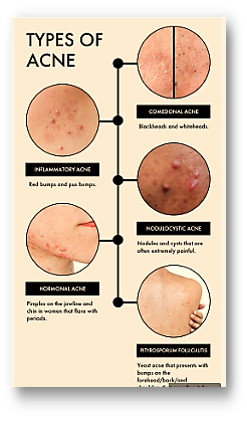
There are several different types of acne, and the type of acne that a person has can vary based on age and gender. For example:
Blackheads:
These are small, black bumps that occur when a pore is clogged with excess oil and dead skin cells. Blackheads are more common in adolescents and young adults.
Whiteheads:
These are small, white bumps that occur when a pore is completely clogged. Whiteheads are Papules:
More common in adolescents and young adults. These are small, red bumps that occur when a pore becomes inflamed. Papules can occur at any age.
Pustules:
These are similar to papules, but they contain pus. Pustules can occur at any age.
Nodules: ACNE & PIMPLE
These are large, painful bumps that occur deep in the skin. Nodules can occur at any age.
Cysts: ACNE & PIMPLE
These are large, painful bumps that are filled with pus and are similar to nodules. Cysts can occur at any age.
It is important to note that these are generalizations, and people of any age or gender can develop any type of acne. If you are concerned about your acne, it is a good idea to consult a dermatologist for personalized treatment recommendations.
HERBAL TREATMENT FOR ACNE!!
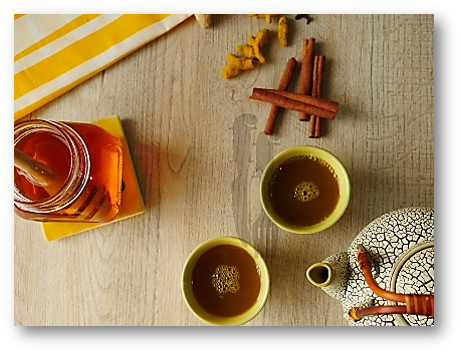
There are several herbs that are thought to have potential benefits for acne. Here are a few examples:
Tea tree oil:
Tea tree oil is derived from the leaves of the tea tree (Melaleuca alternifolia) and is thought to have antibacterial and anti-inflammatory properties. It is often used as a natural treatment for acne.
Green tea:
Green tea is rich in antioxidants and is thought to have anti-inflammatory properties. It has been suggested that green tea may be helpful for acne, although more research is needed.
Aloe vera: ACNE & PIMPLE
Aloe vera is a plant with anti-inflammatory properties. It has been suggested that aloe vera may be helpful for acne, although more research is needed.
Turmeric:
Turmeric is a spice with anti-inflammatory properties. It has been suggested that turmeric may be helpful for acne, although more research is needed.
It is important to note that these herbs have not been extensively studied for their use in acne treatment, and more research is needed to determine their effectiveness. If you are interested in using herbs to treat your acne, it is a good idea to consult a healthcare professional to discuss the potential benefits and risks.
SAY GOODBYE TO ACNE!! ACNE & PIMPLE
There are many home remedies that are suggested as treatments for acne, but it is important to note that the effectiveness of these remedies is not always supported by scientific evidence. Here are a few examples of home remedies for acne and some myths about acne:
Home remedies:
Some people suggest using natural substances, such as honey, lemon juice, or coconut oil, to treat acne. While these substances may have some potential skin benefits, there is limited scientific evidence to support their use as acne treatments.
Myth: Acne is caused by poor hygiene
This is not true. While it is important to cleanse the skin gently, acne is actually caused by factors such as excess oil production, clogged pores, and the presence of bacteria.
Myth: Acne is a sign of an unhealthy diet
While a healthy diet is important for overall health, there is no scientific evidence to support the idea that specific foods cause acne.
Myth: Acne is a sign of internal health problems
While certain health conditions can cause or worsen acne, acne is not necessarily a sign of an underlying health problem.
If you are concerned about your acne, it is a good idea to consult a dermatologist for accurate information and appropriate treatment recommendations.
Acne treatment, Acne products, Acne medication, Acne scars, Acne-prone skin, Pimples, Blackheads, Whiteheads, Cystic acne, Acne vulgaris, Salicylic acid, Benzoyl peroxide, Tretinoin, Dermatologist, Acne scars treatment, Acne prevention.
REFERENCES:
https://www.academia.edu/download/53569667/82._iajpr._acne.pdf
https://jamanetwork.com/journals/jamadermatology/article-abstract/532620

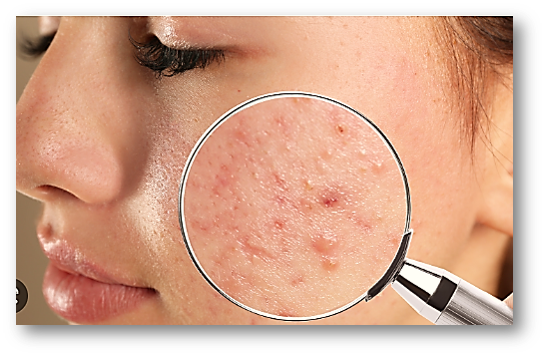
Pingback: ALLERGY AND ALLERGIC REACTIONS!! - Life Biologs
Pingback: HYDRAFACIAL-HYDRATE AND GLOW!! - Life Biologs
Pingback: DARK CIRCLE, DON'T LET THEM DEFINE YOU!! - Life Biologs